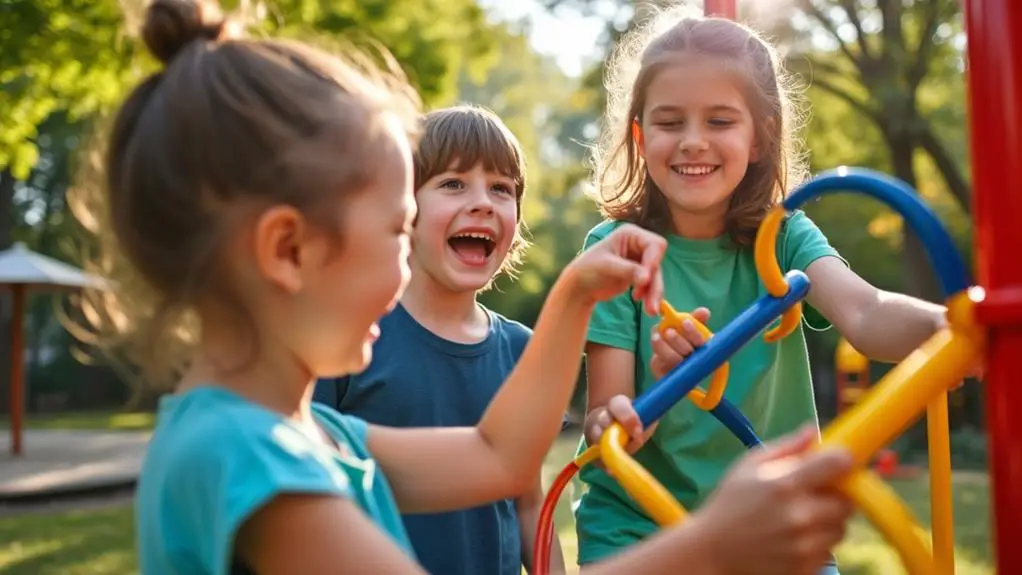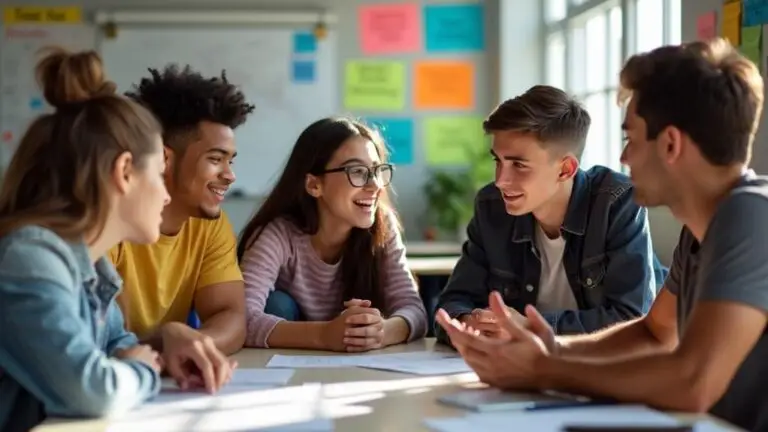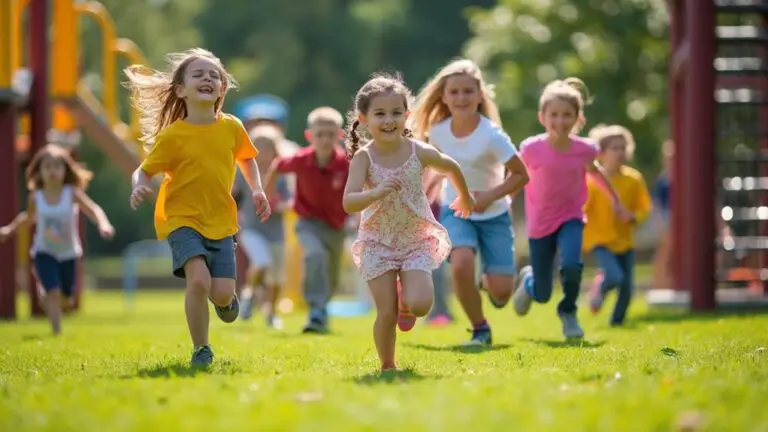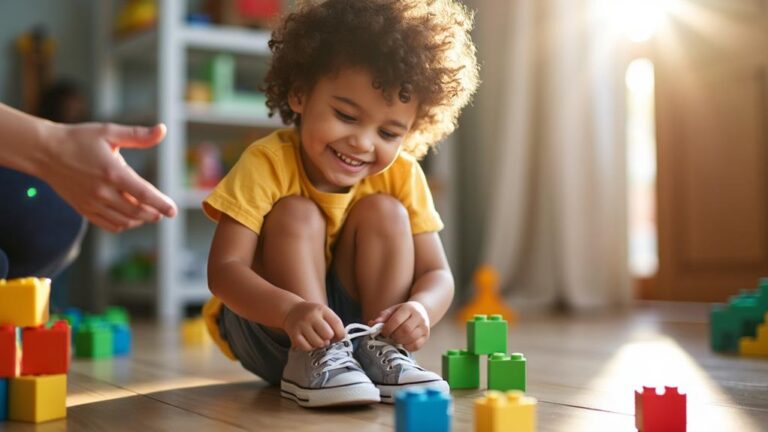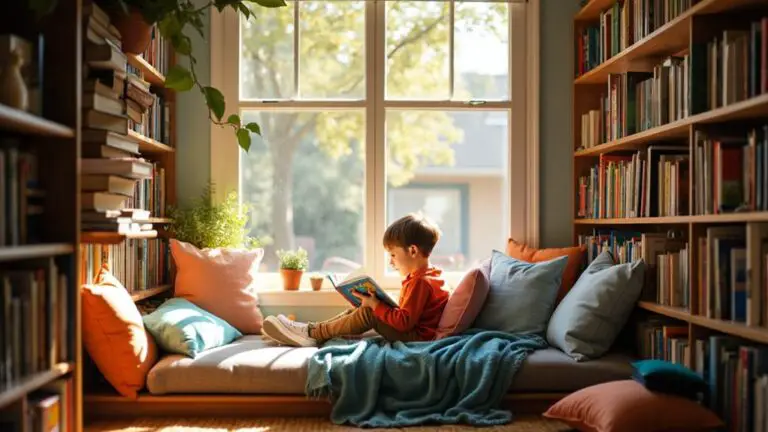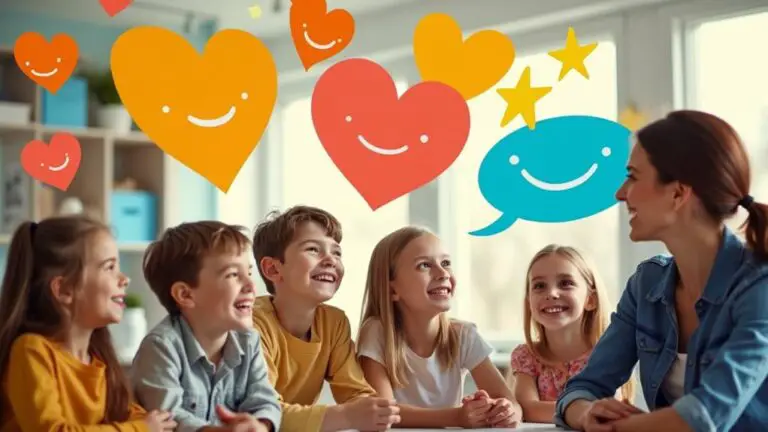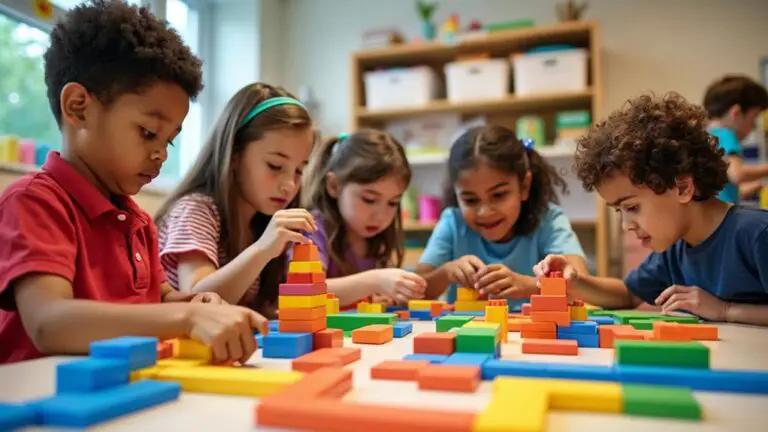Helping Children Build Friendships
As a parent and educator, I've witnessed firsthand the challenges children face when trying to build friendships. It's not always easy for them to navigate the complex world of social interactions, especially in today's digital age. I've found that a combination of creating opportunities, teaching skills, and fostering empathy can make a significant difference in a child's ability to form lasting connections. But there's more to it than just arranging playdates and enrolling kids in activities. The key lies in a nuanced approach that balances guidance with independence, allowing children to develop their own social identities. So, what exactly does this approach entail?
Key Takeaways
- Encourage participation in extracurricular activities to increase peer interaction opportunities.
- Teach essential communication skills like active listening and open-ended questioning.
- Foster empathy through perspective-taking exercises and emotional recognition.
- Arrange regular playdates and family outings to provide low-pressure social environments.
- Balance support with independence to help children navigate friendships and resolve conflicts.
Creating Social Opportunities
Fostering friendships in children often begins with creating ample social opportunities. I've found that enrolling my child in extracurricular activities, such as sports teams or clubs, considerably increases their chances of meeting peers with similar interests.
By planning playdates regularly, I provide a low-pressure environment for my child to practice social skills and deepen their connections with friends.
I also organize family outings with other families, which allows my child to bond in a fun, supportive setting.
Encouraging participation in community events or volunteer activities has proven effective in promoting empathy and collaboration among peers.
To enhance communication skills and teamwork, I facilitate cooperative games and projects.
These opportunities to meet and interact with others help my child build positive relationships and develop essential social skills that will benefit them throughout life.
Teaching Essential Communication Skills
As children navigate the complexities of social interactions, teaching essential communication skills becomes significant for their ability to form lasting friendships. I've found that helping kids make friends starts with developing good communication skills. I teach children self-introduction techniques to boost their confidence when initiating conversations. Active listening and asking open-ended questions are important for engaging peers effectively.
| Skill | Benefit |
|---|---|
| Self-introduction | Enhances confidence |
| Active listening | Fosters deeper connections |
| Open-ended questions | Promotes meaningful dialogue |
| Role-playing | Provides practical experience |
| Sharing likes/dislikes | Encourages reciprocal exchanges |
Role-playing various scenarios helps children practice social behavior and learn to resolve conflicts. By demonstrating healthy communication patterns, I teach your child to understand their feelings and express themselves clearly. These skills are fundamental for building and maintaining friendships throughout their lives.
Fostering Empathy and Understanding
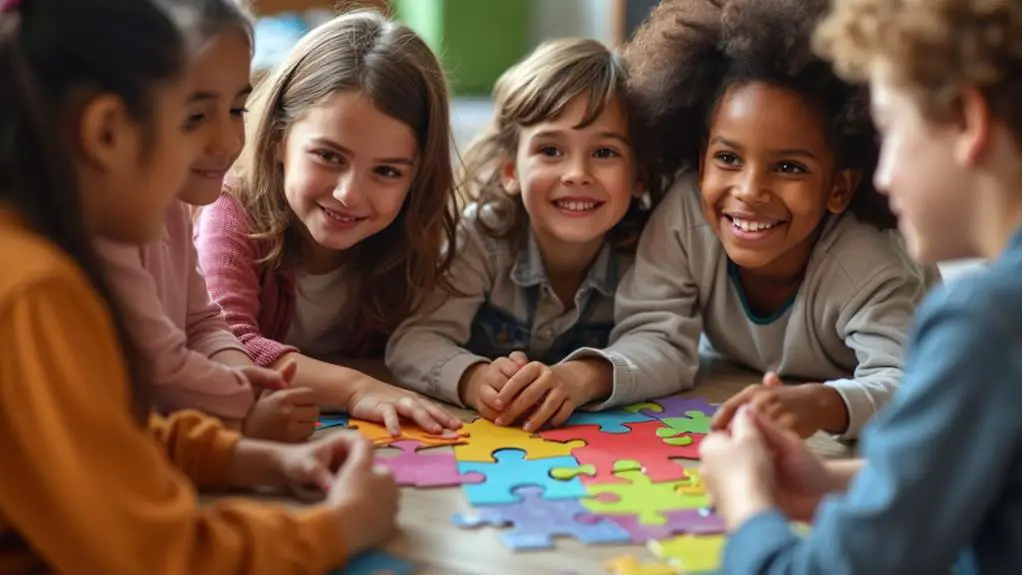
The heart of strong friendships lies in empathy and understanding. I've found that fostering these qualities in children is vital for their social skills development.
By encouraging perspective-taking through role-playing scenarios, I help kids improve their emotional understanding and navigate social interactions more effectively. Teaching children to recognize and express their own feelings is a cornerstone of empathy, enabling them to connect deeply with others' experiences.
I emphasize the importance of forgiveness and considering alternative viewpoints to nurture an inclusive mindset. Active listening is another key relational skill I promote, as it helps children validate their peers' emotions.
Encouraging Independence in Relationships
Independence in childhood friendships is essential for developing robust social skills. As a parent, I've learned to step back and observe my children's interactions without hovering. This approach allows them to explore social dynamics freely while I provide support when needed.
I've found that teaching my kids how to initiate conversations and engage with peers equips them with tools to form connections independently. By encouraging them to manage their friendships, I'm helping them learn from experiences like dealing with rejection or resolving conflicts – vital life skills.
I also provide opportunities for group activities and playdates, which promote collaboration and teamwork. This balance of independence and guided support fosters self-confidence and resilience in my children's relationships, preparing them for future social challenges.
Conclusion
I've learned that helping kids build friendships is a multifaceted process. By creating social opportunities and teaching communication skills, I'm setting the foundation for their social growth. I'm fostering empathy and understanding, which are essential for meaningful connections. I'm also encouraging independence, allowing them to navigate relationships on their own. With these strategies, I'm confident that children can develop the tools they need to form lasting, fulfilling friendships throughout their lives.

